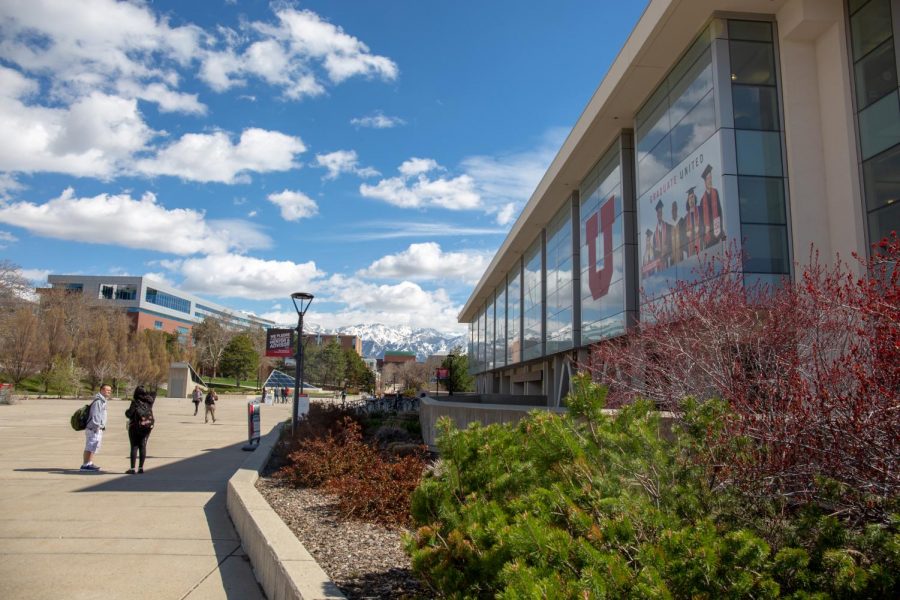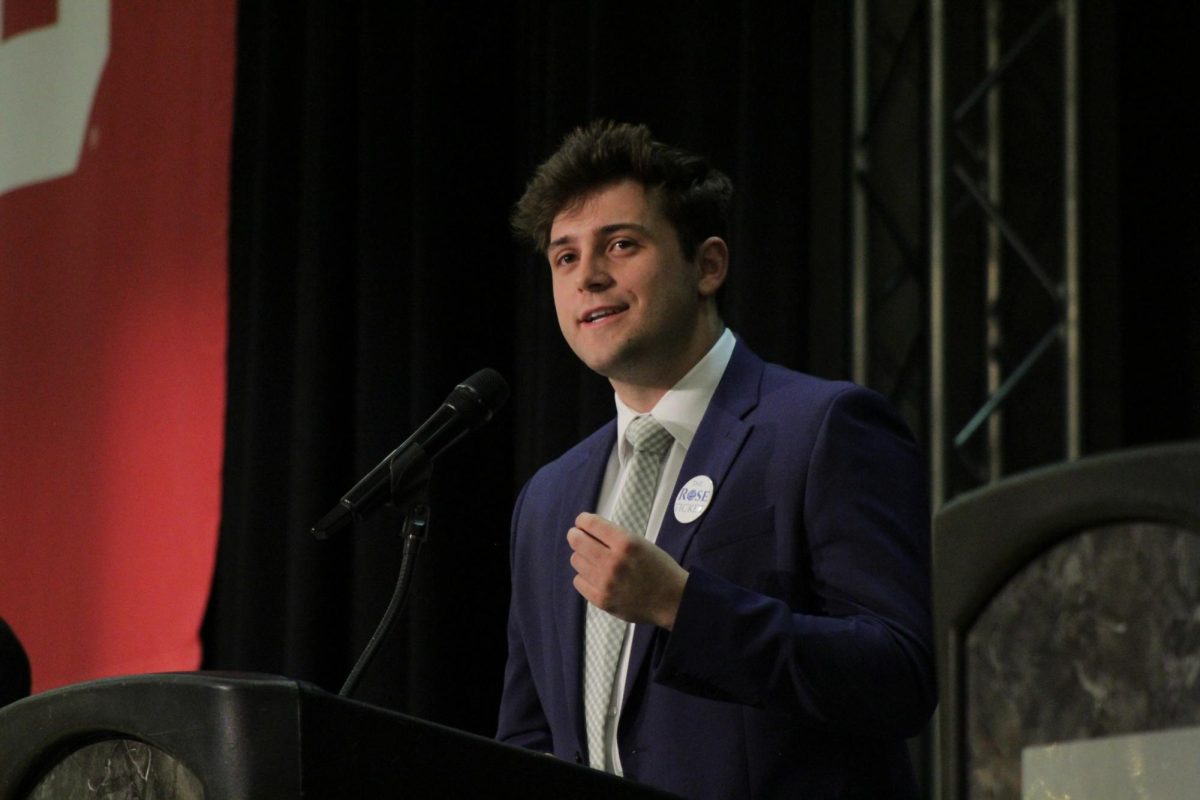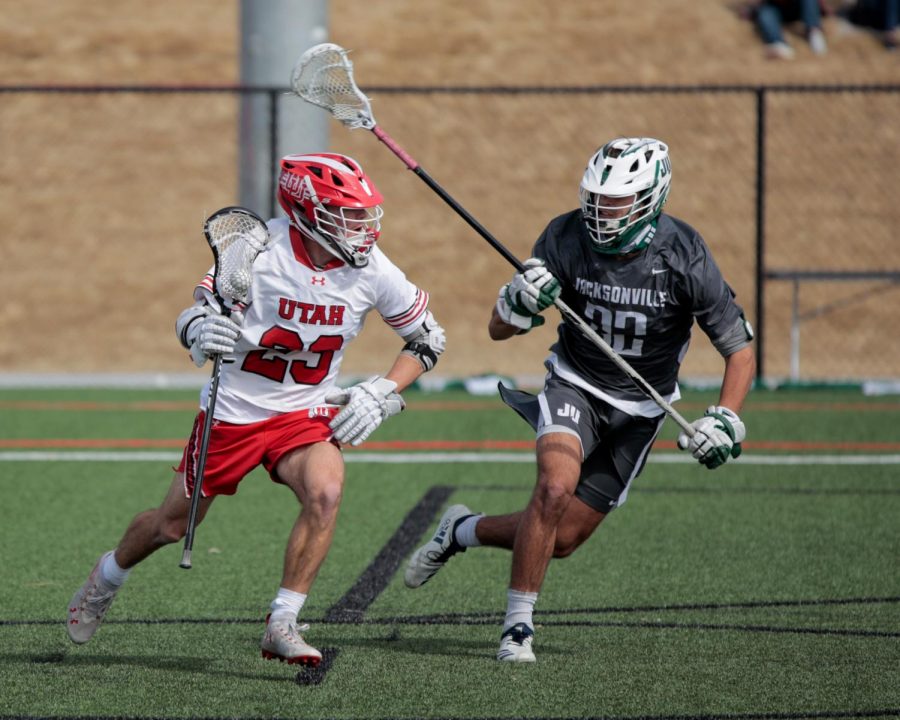Moran: Even Under Stress, Students Should Slow the Impact of COVID-19
“Students at the U and across the nation are struggling. It is important to take care of ourselves, remain calm, have compassion for others and do our part in slowing the spread of the virus.” | Chronicle archives.
March 28, 2020
The last few weeks have left the world on edge. The coronavirus that was first identified in Wuhan, China has now swept over the globe. People are panicked and scared. As if we needed anything else to worry about, a 5.7 magnitude earthquake and dozens of aftershocks hit Salt Lake County.
On top of those stressors, University of Utah students also have the transition of all coursework moving online for the rest of the semester. Students faced a pandemic, an earthquake and a new curriculum mid-semester, all while trying to work and remain socially distanced. With so much change, many students do not know what their futures may look like. The university should do everything it can to accommodate and support students, and despite all of the uncertainty, college students still need to do their part in preventing the spread of COVID-19.
The outbreak of COVID-19 has imposed many costs and impacted many people around the world. The number of cases continues to rise and the death toll is heavily hitting some areas. Everyday life in the U.S. has changed rapidly. The NBA suspended its season shortly after Utah Jazz player Rudy Gobert tested positive for COVID-19. The film industry has taken substantial blows and some films have been postponed their premiers, including “A Quiet Place 2”. Major stores and restaurants have cut down their hours, others have closed all storefronts for the time being. Due to these closures, many people — including many U students — are having difficulties paying their rent and other bills vital for basic survival. Many students rely on the U not only for education but also for housing and employment.
College students are now under more stress than before. Final projects are now beginning to approach. On top of new adjustments, Utah suffered from an earthquake the day many students planned to return to campus from spring break, which can trigger intense mental health conditions. The U canceled classes on the day of the earthquake, but the due dates within classes remained the same. All of these changes take away the time and energy students could have spent on their education, and the U needs to do more to accommodate students. ASUU recently passed a resolution to make emergency grants available for students to help with financial burdens. The U should look for other ways to alleviate students’ burdens and lower the impact of stress, allowing the students to remain focused on their education.
Students at the U created a petition asking that the university allow students to opt into the pass/fail system after courses went online. After receiving over 7,000 signatures, Daniel Reed, Senior Vice President of Academic Affairs, announced that starting on March 23 students have the option to be graded on a pass/fail system rather than traditional letter grades.
This change will help some students who are dealing with immense pressures from COVID-19 and other factors. However, some things are still unclear. The U needs to further address how the pass/fail courses will look on transcripts and ensure that it will not affect degree audits, and the university is allowing students until April 10 to make this decision. It is comforting to know that the U administrators heard the students’ voices and are attempting to help where they can.
Students at the U and across the nation are struggling — it is especially devastating for seniors who were looking forward to graduation. But everyone has had to make sacrifices to prevent what the CDC estimates could be hundreds of thousands to millions dying from COVID-19. We must think of others and practice good hygiene while practicing social distancing. There are things we can do to prevent the spread of coronavirus before the CDC’s predictions become reality. We have the responsibility to do so. The CDC recommends that we wash our hands often, practice social distancing and remain home if we feel sick. Students can have a huge influence in their communities, and our current predicament is a chance to use that ability for good. It is important to take care of ourselves, remain calm, have compassion for others and do our part in slowing the spread of the virus.
s.moran@dailyutahchronicle.com
Editor’s note: Signs and symptoms of COVID-19 include fever, dry cough, tiredness and shortness of breath. These symptoms are believed to occur between two and 14 days after a person is exposed to the disease. If you have these symptoms and have recently come into contact with a person who is known to have COVID-19, or if you have recently traveled to an area with community spread of the disease, you should call your doctor. Areas with community spread of COVID-19 are believed to include China, South Korea, Italy, Iran and Seattle. If you do not have a doctor who you visit regularly, please call the Utah Coronavirus Information Line at 1-800-456-7707 or the University of Utah Health hotline at 801-587-0712. Do not go to a healthcare facility without first making arrangements to do so.











